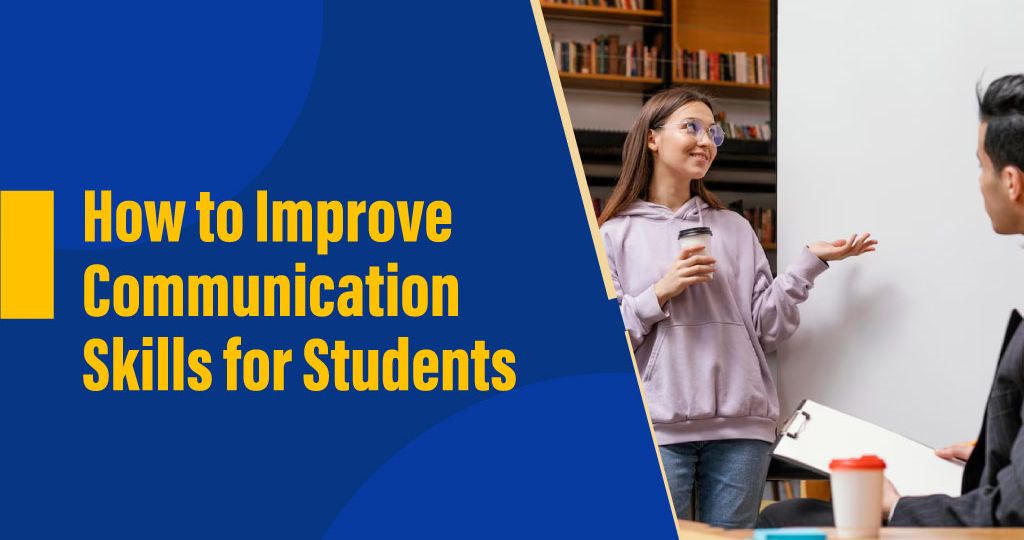
We’ve all been there: attempting to finish a presentation without stammering over every word while standing in front of the class with our palms all sweaty.
Perhaps the issue lies in just speaking out during group talks.
It’s not always simple to communicate; let’s face it. But the truth is, if you’re wondering how to improve communication skills for students, it doesn’t have to be complicated.
With a bit of practice and the right approach, you can start feeling more comfortable speaking up in class, taking part in discussions, and even chatting with friends more confidently.
Learning how to communicate effectively may help you both in and out of the classroom, whether you’re anxious about presentations or you just want to be heard and understood better.
Why effective communication is important
You may be wondering why everyone thinks communication skills are so important. After all, isn’t it more important to concentrate on studying and passing exams?
Actually, though, the secret to success in all facets of life is superb communication as it allows you to convey your views more clearly, interact with people, and grasp others points of view as well.
When you communicate well, you build your relationships, perform better in group projects, and even improve your leadership ability.
First, pay attention.
Becoming a better listener is one of the first stages towards developing communication skills.
Everyone keeps assuming that talking is the only aspect of communication, but listening is just as important. Listening is the other half of effective communication, and not paying attention could rob you of valuable information.
When someone is speaking, begin by paying close attention, refrain from speaking in between, and show your interest by asking questions.
Practice having clear conversations.
Learning how to improve communication skills for students starts with speaking clearly and thoughtfully, especially while giving presentations or taking part in class debates.
You do not need to hurry your thoughts. Give yourself a minute to process all your ideas before speaking.
This makes your ideas easier to be understood by others and helps you express them in a more structured way. Speaking slowly and using simple language will help you prevent misunderstandings and ensure that your message is well received.
Grow your vocabulary
Your ability to communicate can be drastically improved by increasing your vocabulary, so will your confidence to express yourself
Here’s a tip:
Every day, try picking up a new term to use in your conversations. But keep in mind that good communication is about conveying your information in a simple manner, not about impressing others with fancy phrases. Also, make sure you choose language that correctly conveys your views and fits the situation.
Nonverbal cues are important
The majority of our communication is nonverbal; did you hear that? Without saying a word, your facial expressions, body language, and even eye contact could say a lot. Understanding nonverbal cues as a student can improve your communication abilities.
For example, keeping eye contact conveys confidence and engagement, but slouching or crossing your arms could signal disinterest.
Have talks in groups
Engaging in group conversations is a great method to get better at communicating. You may practice speaking out, offering your thoughts, and listening to others in a secure environment. Group discussions are a practical way to practice and discover how to improve communication skills for students in a supportive environment.
Participate in class discussions or study groups as a starting point. Even if you’re not sure what to think, don’t be scared to speak your mind. With practice, your knack to share your ideas will improve, boosting your confidence and chances of success.
Be willing to accept feedback.
Getting feedback is a fantastic method for boosting communication abilities as well. Seek constructive feedback on your communication style from your professors, friends, or family members.
Although receiving criticism might be awkward at first, it can help you understand your areas of strength and growth. This self-awareness will inevitably end in improved communication abilities and personal development.
Regularly read and write
Good communication requires both reading and writing. Regular reading exposes you to a variety of communication methods, which improves your own abilities. In the same way, writing helps with better clarity and mental organization.
To practice organizing your ideas, try writing articles, blogging, or keeping a diary. With time, you will become more proficient in both written and spoken communication.
And lastly,
The secret to developing communication abilities is your confidence. Believe in your own strengths and your communication skills.
Remain confident and practice even if you make mistakes or feel uneasy. You can communicate more effectively, listen intently, and interact with people more successfully when you are confident.
While it takes time to improve communication skills, just having a knowledge of how to improve communication for students can help students make great progress if they put in regular effort. These tiny actions, like practicing public speaking, listening more intently, or participating in group discussions, may have a significant impact. Start now, and you’ll see how improving your communication skills improves both your personal and academic relationships.
